03 May2021
By Gaelle Gilbert

Teacher Appreciation Week: May 3-7, 2021
Each year, the National Parent Teacher Association (PTA), in partnership with Office Depot and Office Max, celebrates educators. The theme, #ThankATeacher, invites all Americans to take time to honor the service teachers provide. Now more than ever, it is critical to recognize the difficult and sometimes at-risk work teachers face in the classroom during the health pandemic. Schools across the country face teacher shortages so this week’s celebration conveys an important message that teachers matter.This year’s #ThankATeacher activities include collecting imagery for scrapbooking to encourage students and parents to remember all the good from educators this year. The National PTA asks participants to share on social media platforms, including Facebook, Twitter, and Instagram, hashtags and resources from the toolkit available on their website. All of the resources within the toolkit are available in English and Spanish.
03 Apr2021
By The Wallace Foundation
Learn about the findings from a new, comprehensive study commissioned by The Wallace Foundation, The Role of Assistant Principals: Evidence and Insights for Advancing School Leadership. Based on two decades of research, the synthesis focuses on a role that is increasingly prevalent but often overlooked. The report suggests APs could become a more powerful force in advancing equity, student outcomes, and school leadership goals.
The Role of Assistant Principals: A New Synthesis Offers Evidence and Insights
Tuesday, April 13, 2021 from 1:00 – 2:00 p.m. ET via Zoom
We invite you to register for this important, one-hour event.
30 Mar2021
By Bart Epstein
The U.S. federal government, states, and school districts collectively spend between $26 and $41 billion per year on education technology materials, according to a new analysis released today by a coalition of education nonprofits led by the EdTech Evidence Exchange. These estimates reflect a troubling lack of understanding about how much the country actually spends on edtech, and also suggest that even according to the lowest estimates, the country spends at least twice the $13 billion figure often previously cited by industry analysts and policymakers.
“We are spending billions of dollars on technology with almost no information about which tools actually work, where, and why,” said Bart Epstein, CEO of the EdTech Evidence Exchange and a research associate professor at the University of Virginia School of Education and Human Development. “We know that technology can have a profound impact on educational outcomes, but thousands of tools and programs used by schools are creating confusion for educators and administrators, not to mention students and parents. When poorly selected or implemented, they waste teacher time and energy and rob students of learning opportunities. Making good on the transformative potential of education technology starts with listening to, and learning from, people who are actually using it.”
22 Mar2021
By Lynn M. Gangone and Daniel Domenech

Adobe Stock Photos
AACTE President and CEO Lynn M. Gangone and Daniel A. Domenech, executive director of AASA, The School Superintendents Association, authored this article that originally appeared in the District Administration and is reprinted with permission.
 Our nation’s education ecosystem is complex and multifaceted. When one component of the ecosystem is impacted, it creates a ripple effect that is felt throughout the entire system. The onset of the COVID-19 pandemic created a tidal wave of uncertainties, resulting in budget cuts, teacher shortages, and remote learning challenges.
Our nation’s education ecosystem is complex and multifaceted. When one component of the ecosystem is impacted, it creates a ripple effect that is felt throughout the entire system. The onset of the COVID-19 pandemic created a tidal wave of uncertainties, resulting in budget cuts, teacher shortages, and remote learning challenges.
An ongoing concern for school districts, teacher shortages have now become more severe. Teachers are leaving the profession at an accelerated rate, due primarily to health concerns and budget furloughs, and forcing superintendents to close schools not because of infection, but due to a lack of personnel to keep them open. The shortage also expands beyond teachers. It includes bus drivers, cafeteria workers, custodians, and essential support staff. Such reductions, caused by budget cuts resulting from the pandemic, are having a crippling effect upon school districts, and increased operational costs are eroding critical funds necessary to hire the staff desperately needed for in-school instruction.
04 Mar2021
By AACTE
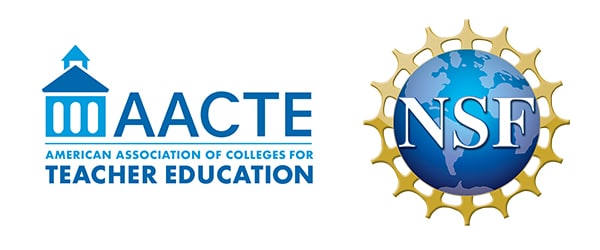
The American Association of Colleges Teacher Education (AACTE) has launched a new initiative to advance the use of simulation in science educator preparation. AACTE recently received the National Science Foundation (NSF) Discovery Research PreK-12 convening grant to address the critical need for well-qualified science educators who can teach effectively in a variety of face-to-face and virtual school settings and meet the needs of diverse learners.
03 Mar2021
By Trynia Kaufman and Meghan Whittaker

At Understood and the National Center for Learning Disabilities, we have been working to understand the challenges that distance learning has presented to students who learn differently.
In response, we have developed a practical resource to help educators more effectively support students with learning differences, and in turn all learners, during distance learning. Today, we are eager to share that resource with you and the world at large in our new “Distance learning toolkit: Key practices to support students who learn differently.”
24 Feb2021
By Caitlin Kanaly
Collaboration benefits AACTE member institutions with complimentary access to GoReact’s platform through July and discounted access thereafter.
GoReact and the American Association of Colleges for Teacher Education (AACTE) today announced a joint venture to expand educator preparation programs’ access to video assessment tools. The partnership was announced during AACTE’s 73rd Annual Meeting, the premier event for teacher education.
Through the partnership, AACTE member institutions can receive complimentary access to GoReact’s video assessment platform for a limited time and an ongoing discount thereafter. New GoReact users will receive free access to the platform until July 31, 2021, while existing GoReact users will receive expanded usage rights during the same timeframe. All AACTE members will receive a minimum of 10% discounted pricing following the complimentary service period. More than 175 AACTE member institutions currently use GoReact within their educator preparation programs.
22 Feb2021
By Learning First Alliance

AACTE Board member Kimberly White-Smith, dean, LaFetra College of Education at University of La Verne, is among the featured education leaders presenting at the “Speaking Up for Public Schools” livestream discussion on Tuesday, February 23 at 2:00 p.m.
Each year Public Schools Week brings together Learning First Alliance members, educators, parents, business and community leaders, and many others across the country to show the strength—and potential—of our nation’s public schools and our students’ futures. Even now, public schools are making connections each day with their students, families and broader communities.
We will celebrate Public Schools Week 2021, Feb. 22-26, virtually. On Tuesday, Feb. 23 at 2 p.m. EST the Learning First Alliance and its members will host a discussion on what has been learned and how public schools can move forward from the Covid-19 pandemic. The event will spotlight social-emotional learning and how the educators are meeting student needs as well as future needs. The show can be viewed on LFA’s YouTube channel and Facebook page.
22 Feb2021
By Laura Geringer and Jacqueline Rodriguez
 CoSN, the national association of school district technology leaders, recently released two reports, Driving K-12 Innovation: 2021 Hurdles + Accelerators and Driving K-12 Innovation: 2021 Tech Enablers. The Driving K-12 Innovation reports capture the top nine topics (challenges, mega-trends, and tools), according to an advisory board of approximately 100 school leaders, technologists, educators, and changemakers. AACTE was proud to serve on the advisory board that supported the development of the report for the second year in a row.
CoSN, the national association of school district technology leaders, recently released two reports, Driving K-12 Innovation: 2021 Hurdles + Accelerators and Driving K-12 Innovation: 2021 Tech Enablers. The Driving K-12 Innovation reports capture the top nine topics (challenges, mega-trends, and tools), according to an advisory board of approximately 100 school leaders, technologists, educators, and changemakers. AACTE was proud to serve on the advisory board that supported the development of the report for the second year in a row.
Through the Driving K-12 Innovation series, CoSN continues its commitment to sharing high-quality trend reports that support the use of emerging technology in K-12 education to transform learning. In this initiative, a global advisory board of K-12 leaders, practitioners, and changemakers engages in discourse about the major themes driving, hindering, and enabling teaching and learning innovation at schools. Their work is divided into three steps: an initial survey to select the topics for discussion; discussion; and a concluding survey to capture the final thoughts from advisory board members and discern the top topics to feature in each publication. (Learn more at cosn.org/k12innovation.)
01 Feb2021
By Carolyn Phenicie
AACTE congratulates the four National Teacher of the Year finalists, all of whom have earned a degree from an AACTE member institution. To view their full profiles, visit the CCSSO website.

The Council of Chief State School Officers (CCSSO) announced that four exemplary educators from across the country are finalists for 2021 National Teacher of the Year:
29 Jan2021
By Ji Soo Song
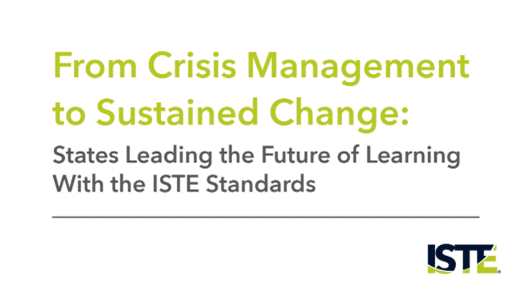 ISTE has released its newest policy report, “From Crisis Management to Sustained Change: States Leading the Future of Learning With the ISTE Standards.”
ISTE has released its newest policy report, “From Crisis Management to Sustained Change: States Leading the Future of Learning With the ISTE Standards.”
Fueled by the rapid transition to online and blended instruction in response to COVID-19 and continued need to equitably improve student outcomes, educators, and leaders across the country have faced an unprecedented challenge to design, implement, and scale learning strategies made possible through technology. This challenge also presents a new opportunity, as systems and strategies used to address COVID-19 can also propel our schools forward towards the future of learning and better meet students’ and educators’ needs.
19 Jan2021
By Maria Hyler
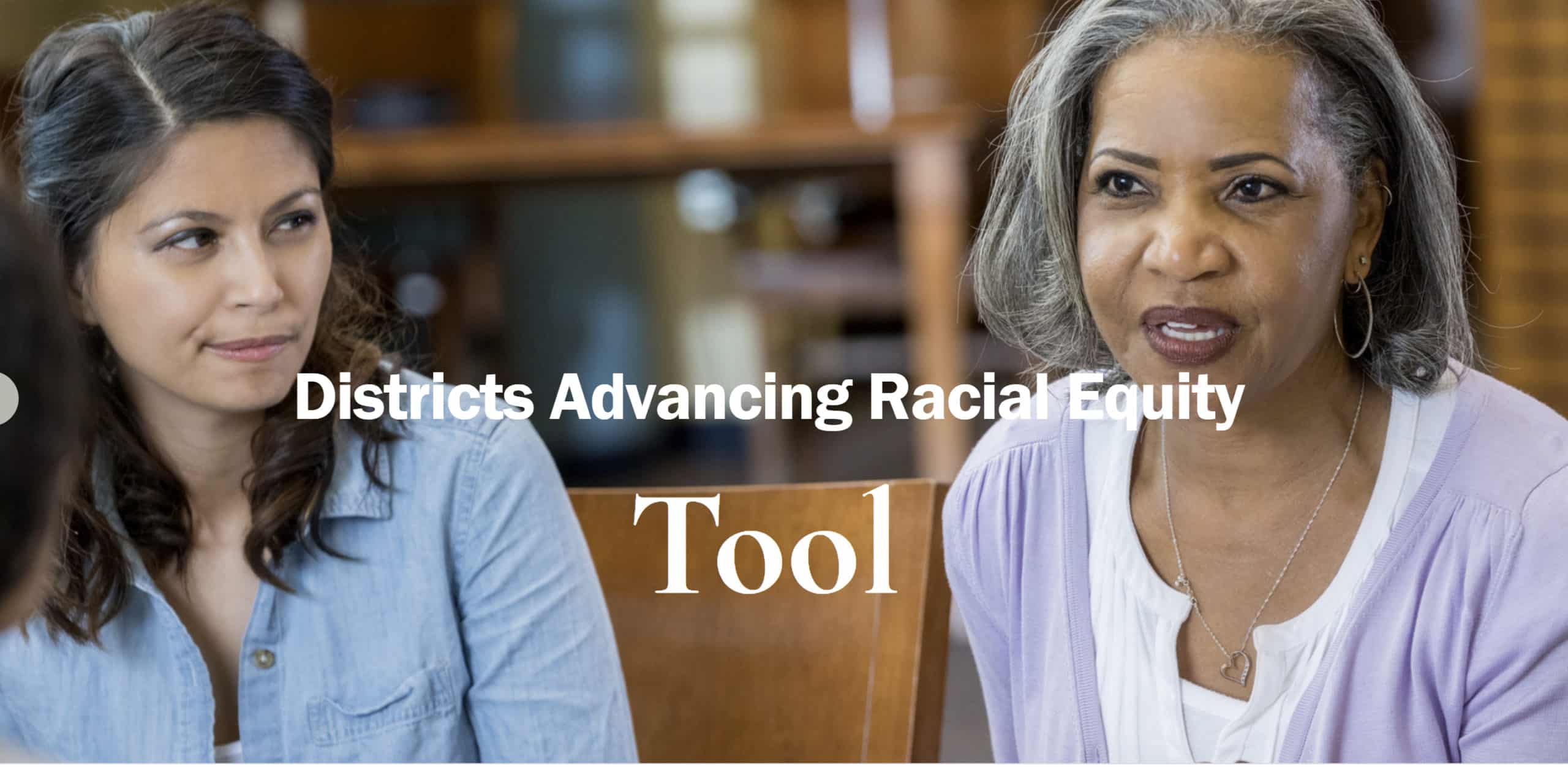
This article originally appeared on the Learning Policy Institute website an is reprinted with permission. The article was written by Maria E. Hyler, Desiree Carver-Thomas, Marjorie Wechsler, and Larkin Willis.
Decades of reforms have proven insufficient to address persistent racial disparities in educational opportunities. In school systems across the United States, meaningful efforts to ensure access to strong educational opportunities require a bold and significant shift. Policies and practice must not only prevent discrimination; they must move beyond simple notions of equality—in which every student gets the same—to equity—in which all students get what they need to develop academically, socially, emotionally, and physically.
School leaders who have been committed to racial equity understand the historical legacy of structural racism that reaches to our present context and that results in the educational opportunity gaps that students still experience. District staff who have focused on racial equity recognize that students’ individualized experiences, opportunities, and successes in school are deeply contextualized in the social reality of institutionalized racism across the United States. They seek to educate the individuals and ameliorate the systems that perpetuate inequitable opportunities and resulting outcomes for students.
19 Jan2021
By Meg Kamman and Tim Neubert
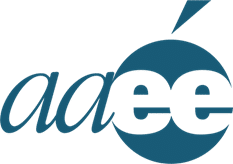 The American Association for Employment in Education (AAEE) is requesting AACTE members’ participation in the 2020-2021 Educator Supply and Demand Survey, conducted in conjunction with the Center for Marketing & Opinion Research, LLC (CMOR). Both AAEE members and non-members are invited and encouraged to participate.
The American Association for Employment in Education (AAEE) is requesting AACTE members’ participation in the 2020-2021 Educator Supply and Demand Survey, conducted in conjunction with the Center for Marketing & Opinion Research, LLC (CMOR). Both AAEE members and non-members are invited and encouraged to participate.
With data and perceptions gathered from colleges, universities, and school systems over several decades, the report generated will provide you and your institution with valuable regional and national insights and trends in PK-12 educator supply and demand. An electronic version of this report will be provided to all respondents in Spring 2021 at no cost.
Completion of the survey should take about 15 minutes and all responses will remain confidential.
Preview questions (in PDF format) prior to survey completion.
College or University? Complete this survey.
School District? Complete this survey.
15 Dec2020
By AACTE

AACTE is pleased to announce the 2020 recipients of the new AACTE Video Observation Technology Implementation Grant. AACTE offered the grant in partnership with Edthena to help educator preparation programs enhance training for future teachers in methods courses, field observations, skill building, and group learning via advanced technology.
“Both AACTE and Edthena understand that video observation technology has the potential to positively impact candidates during and after the COVID-19 pandemic,” said Lynn M. Gangone, AACTE president and CEO. “AACTE is proud to collaborate with partners like Edthena to promote technology growth in schools and colleges of education.”
11 Dec2020
By Ward Cummings
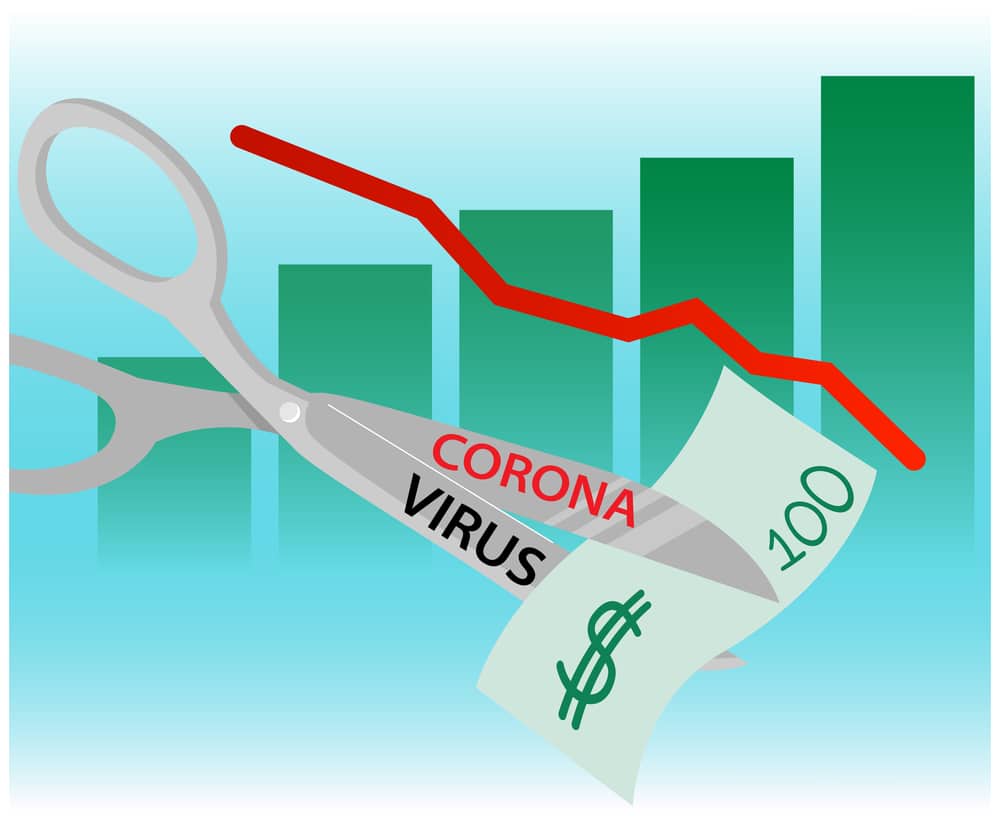 This month, AACTE joined like-minded institutions in writing a letter to congressional leaders in updating their earlier findings regarding four key COVID-19-related economic indicators that are placing significant financial burdens on higher educational institutions. The emergence of more detailed data regarding these four categories (enrollment, student financial need, auxiliary revenues, and new expenditures) revealed the troubling truth that our prior estimates about the impact of COVID-19 on the economic health of educational institutions was significantly underestimated and that the challenges students and schools are facing are far more severe than initially thought.
This month, AACTE joined like-minded institutions in writing a letter to congressional leaders in updating their earlier findings regarding four key COVID-19-related economic indicators that are placing significant financial burdens on higher educational institutions. The emergence of more detailed data regarding these four categories (enrollment, student financial need, auxiliary revenues, and new expenditures) revealed the troubling truth that our prior estimates about the impact of COVID-19 on the economic health of educational institutions was significantly underestimated and that the challenges students and schools are facing are far more severe than initially thought.
As a consequence of these updated findings, AACTE signed on to a new letter urging Congress and the Administration to finalize negotiations as quickly as possible on a supplemental spending bill of sufficient size to provide at least $120 billion in needed support to students and campuses across the country. The detailed new findings described in the letter, while suggesting a potentially long, painful economic road ahead for some higher ed, provides a detailed and illuminating accounting of the many ways COVID-19 is burdening enrollment, student aid, and revenues at institutions of higher learning around the country.









 Our nation’s education ecosystem is complex and multifaceted. When one component of the ecosystem is impacted, it creates a ripple effect that is felt throughout the entire system. The onset of the COVID-19 pandemic created a tidal wave of uncertainties, resulting in budget cuts, teacher shortages, and remote learning challenges.
Our nation’s education ecosystem is complex and multifaceted. When one component of the ecosystem is impacted, it creates a ripple effect that is felt throughout the entire system. The onset of the COVID-19 pandemic created a tidal wave of uncertainties, resulting in budget cuts, teacher shortages, and remote learning challenges.


 CoSN, the national association of school district technology leaders, recently released two reports, Driving K-12 Innovation: 2021 Hurdles + Accelerators and Driving K-12 Innovation: 2021 Tech Enablers. The Driving K-12 Innovation reports capture the top nine topics (challenges, mega-trends, and tools), according to an advisory board of approximately 100 school leaders, technologists, educators, and changemakers. AACTE was proud to serve on the advisory board that supported the development of the report for the second year in a row.
CoSN, the national association of school district technology leaders, recently released two reports, Driving K-12 Innovation: 2021 Hurdles + Accelerators and Driving K-12 Innovation: 2021 Tech Enablers. The Driving K-12 Innovation reports capture the top nine topics (challenges, mega-trends, and tools), according to an advisory board of approximately 100 school leaders, technologists, educators, and changemakers. AACTE was proud to serve on the advisory board that supported the development of the report for the second year in a row.
 ISTE has released its newest policy report, “From Crisis Management to Sustained Change: States Leading the Future of Learning With the ISTE Standards.”
ISTE has released its newest policy report, “From Crisis Management to Sustained Change: States Leading the Future of Learning With the ISTE Standards.”
 The American Association for Employment in Education (AAEE) is requesting AACTE members’ participation in the 2020-2021 Educator Supply and Demand Survey, conducted in conjunction with the Center for Marketing & Opinion Research, LLC (CMOR). Both AAEE members and non-members are invited and encouraged to participate.
The American Association for Employment in Education (AAEE) is requesting AACTE members’ participation in the 2020-2021 Educator Supply and Demand Survey, conducted in conjunction with the Center for Marketing & Opinion Research, LLC (CMOR). Both AAEE members and non-members are invited and encouraged to participate.
 This month, AACTE joined like-minded institutions in writing a letter to congressional leaders in updating their earlier findings regarding four key COVID-19-related economic indicators that are placing significant financial burdens on higher educational institutions. The emergence of more detailed data regarding these four categories (enrollment, student financial need, auxiliary revenues, and new expenditures) revealed the troubling truth that our prior estimates about the impact of COVID-19 on the economic health of educational institutions was significantly underestimated and that the challenges students and schools are facing are far more severe than initially thought.
This month, AACTE joined like-minded institutions in writing a letter to congressional leaders in updating their earlier findings regarding four key COVID-19-related economic indicators that are placing significant financial burdens on higher educational institutions. The emergence of more detailed data regarding these four categories (enrollment, student financial need, auxiliary revenues, and new expenditures) revealed the troubling truth that our prior estimates about the impact of COVID-19 on the economic health of educational institutions was significantly underestimated and that the challenges students and schools are facing are far more severe than initially thought.